
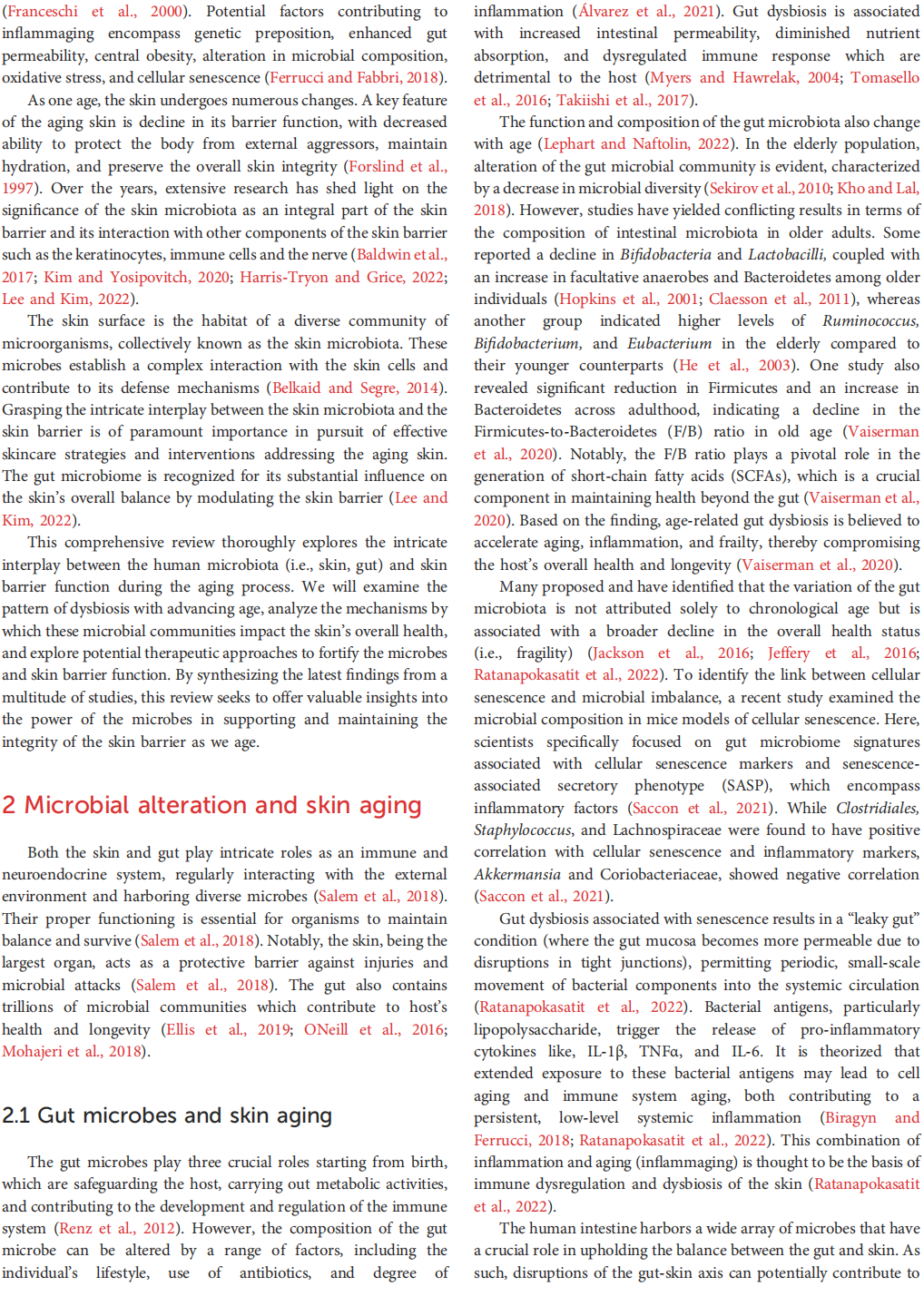
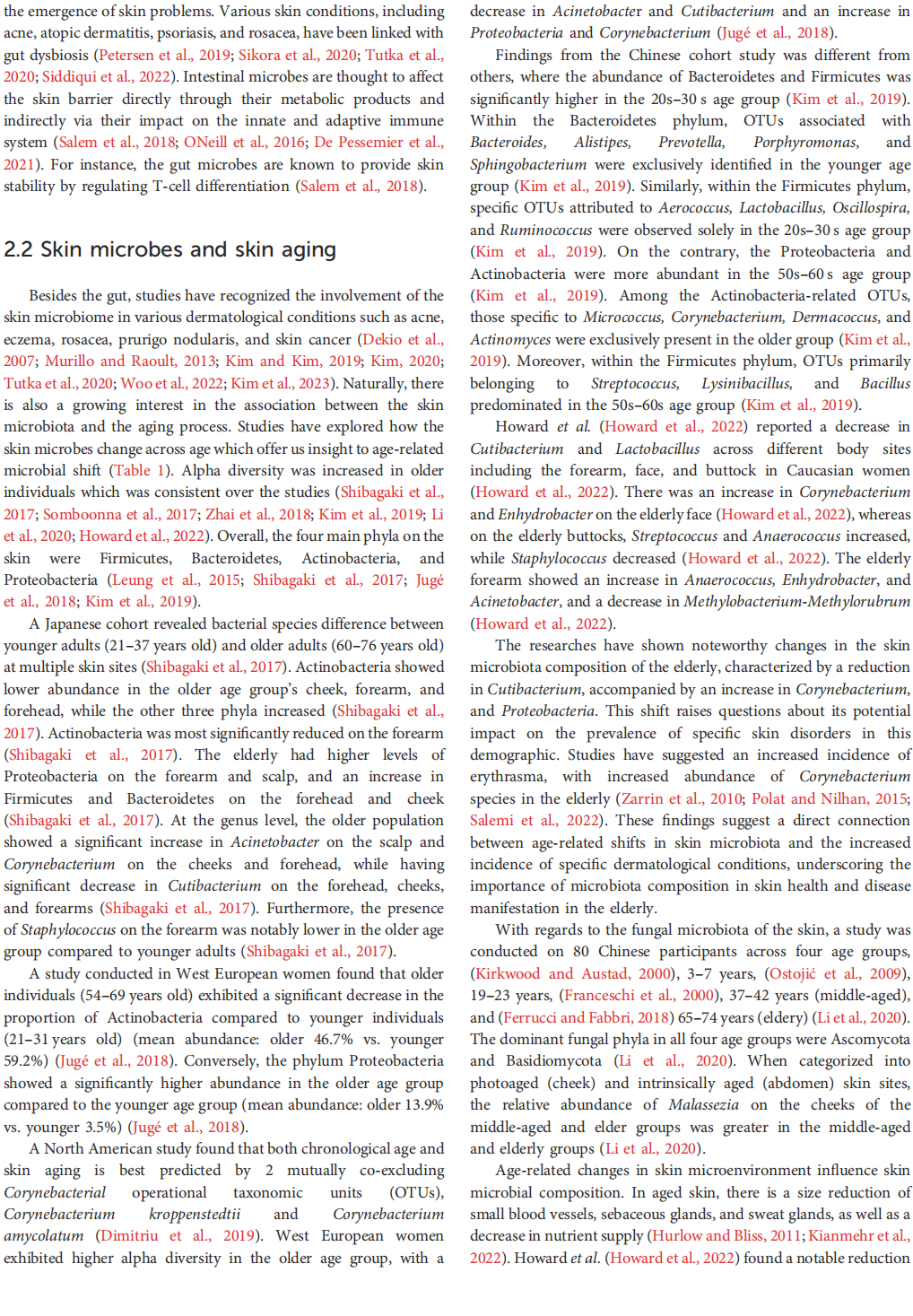
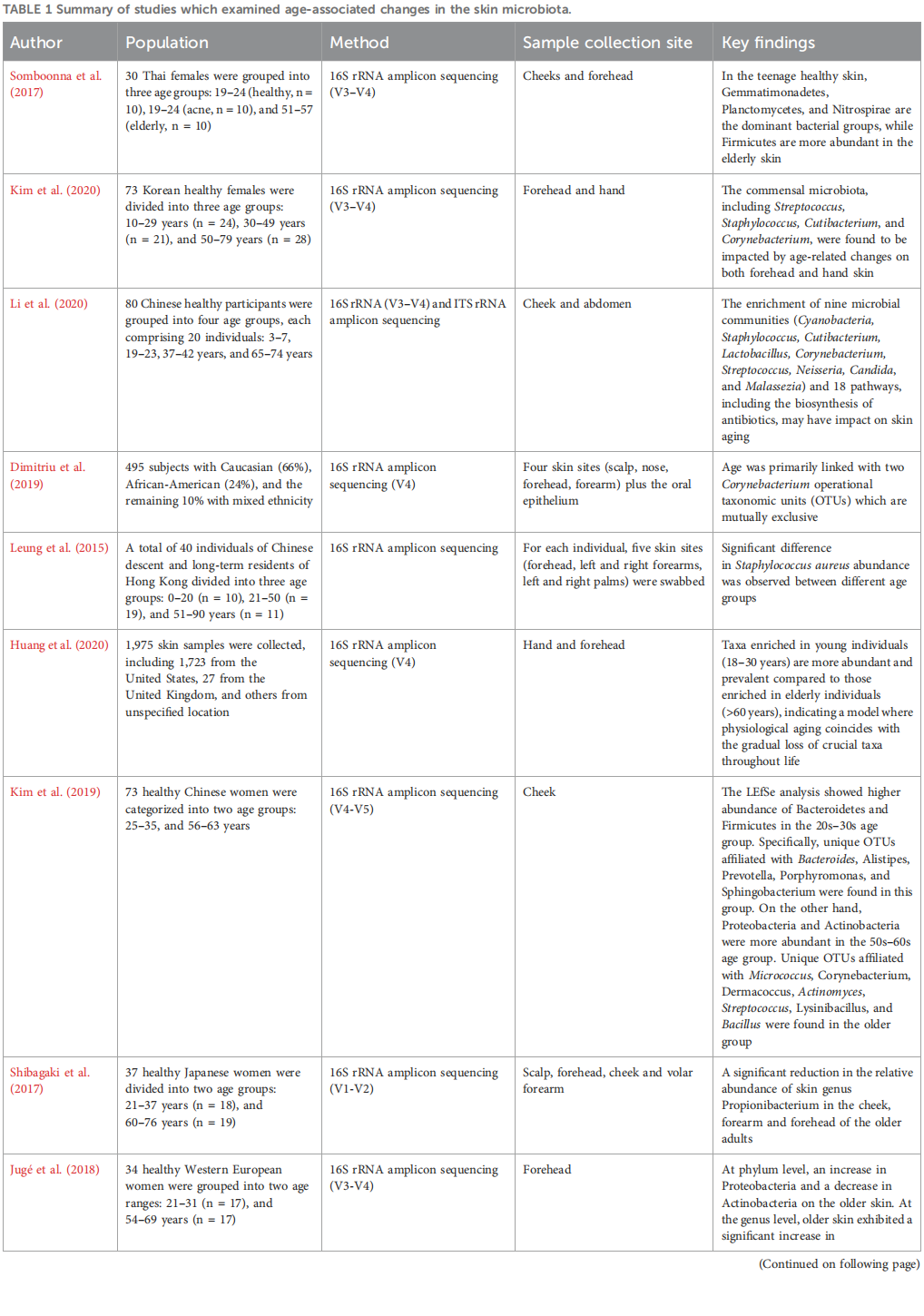
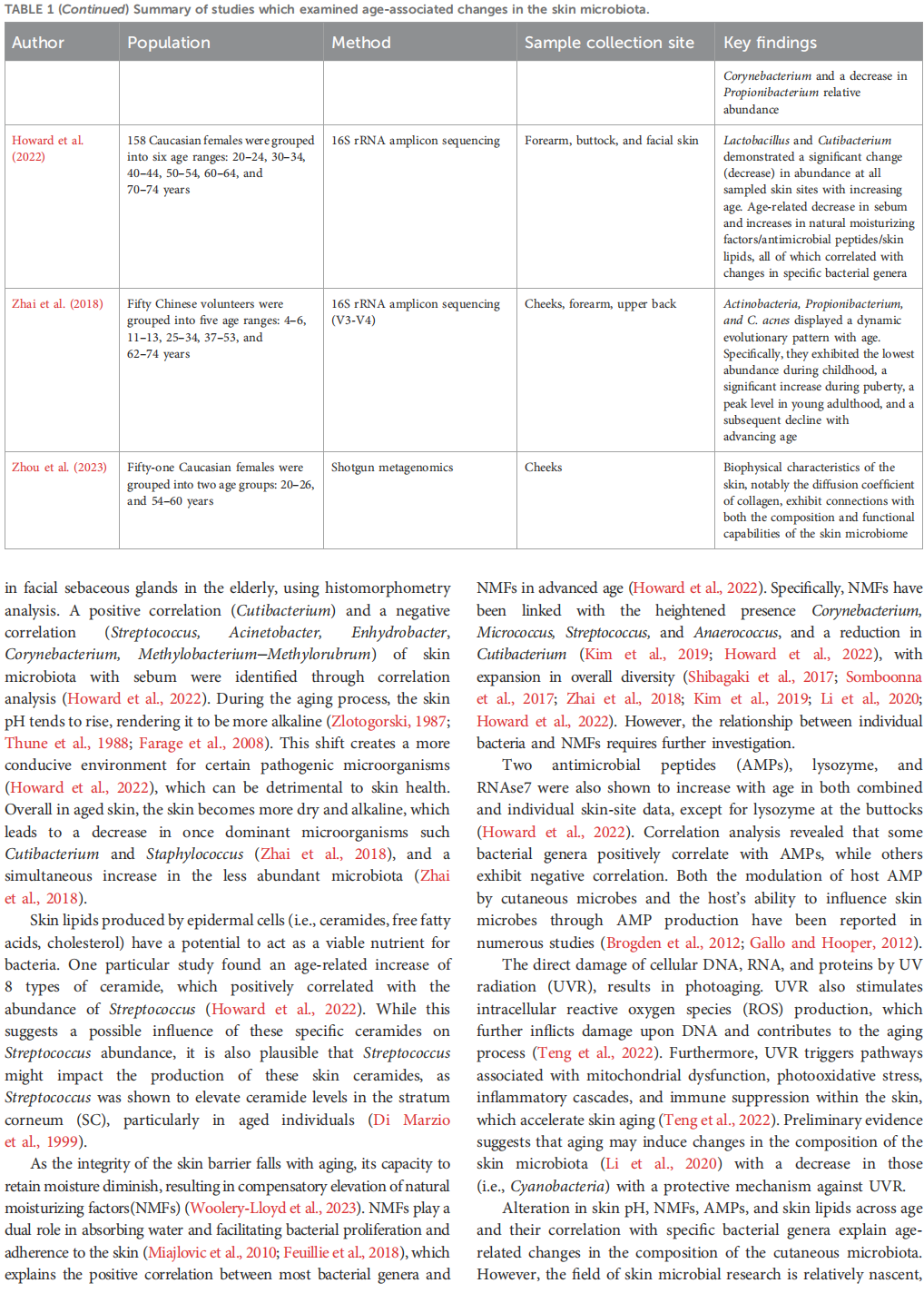
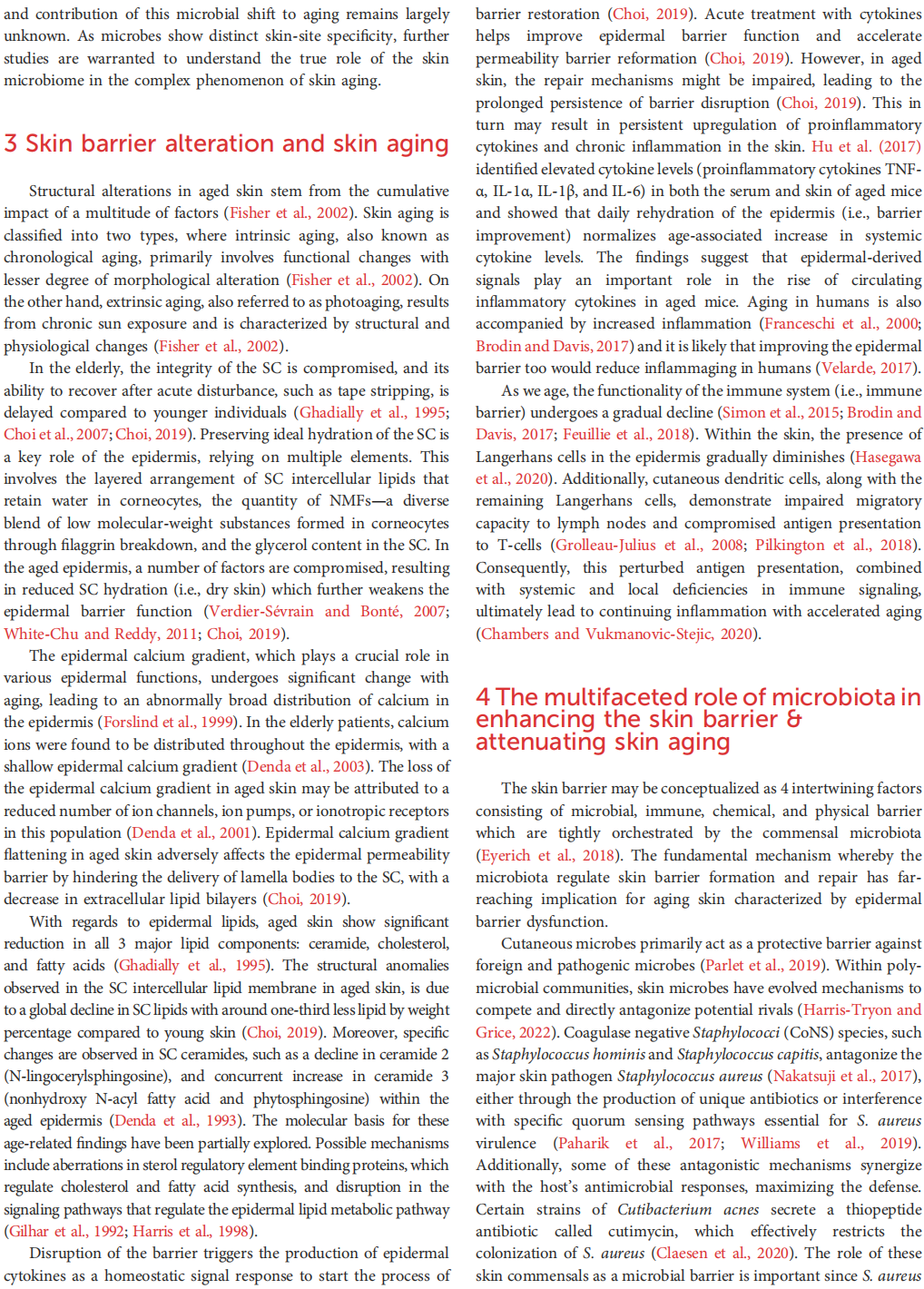
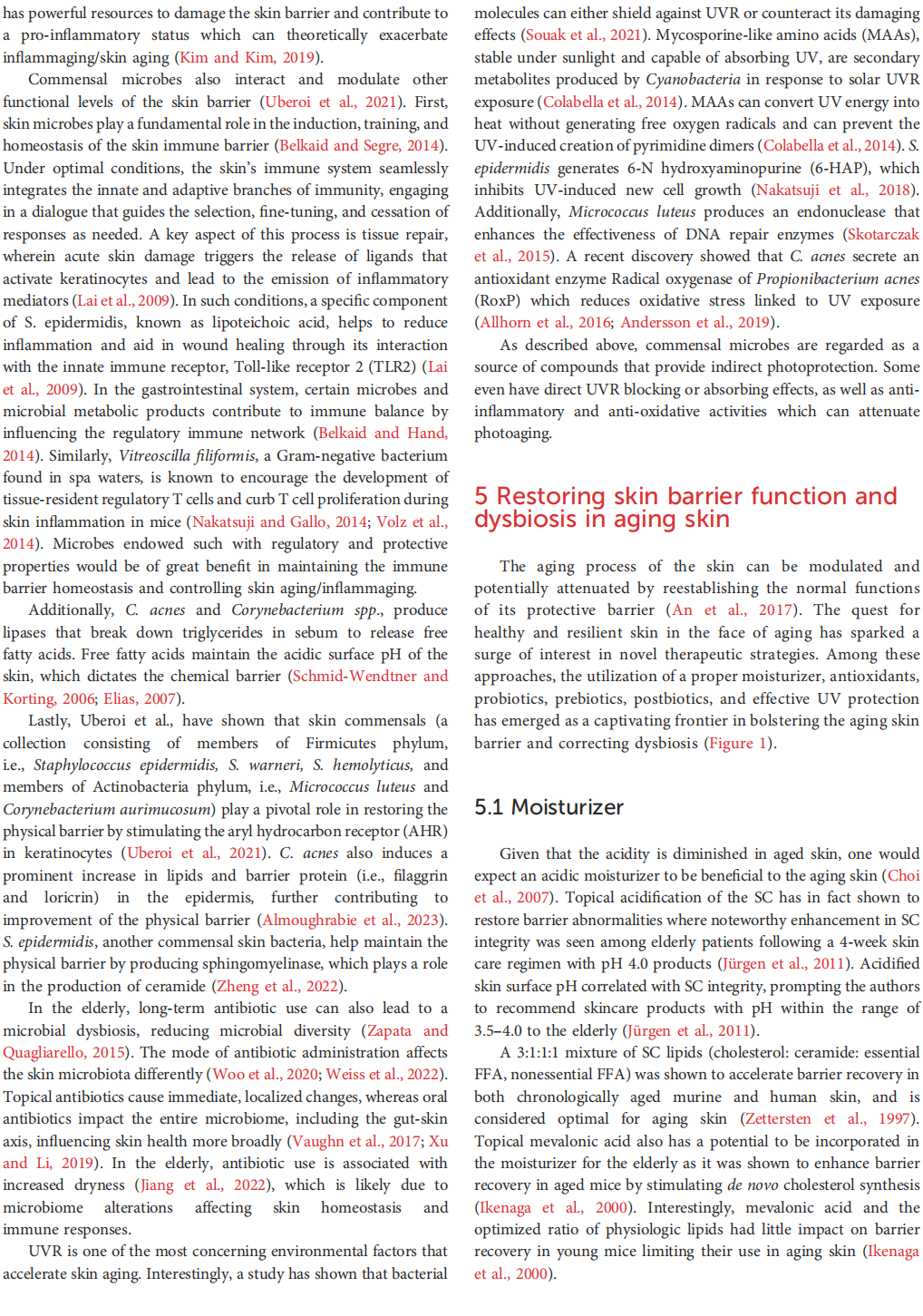
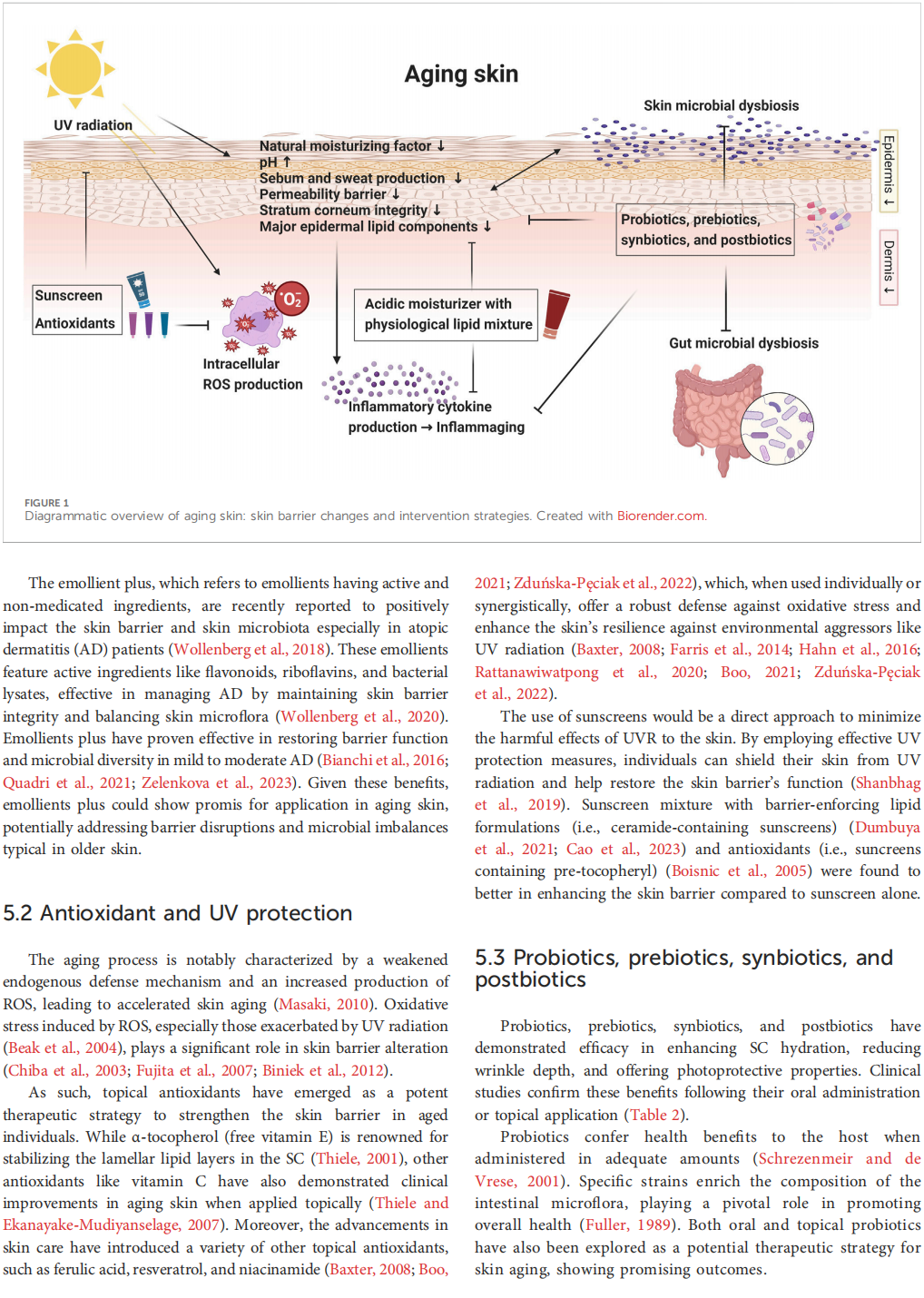
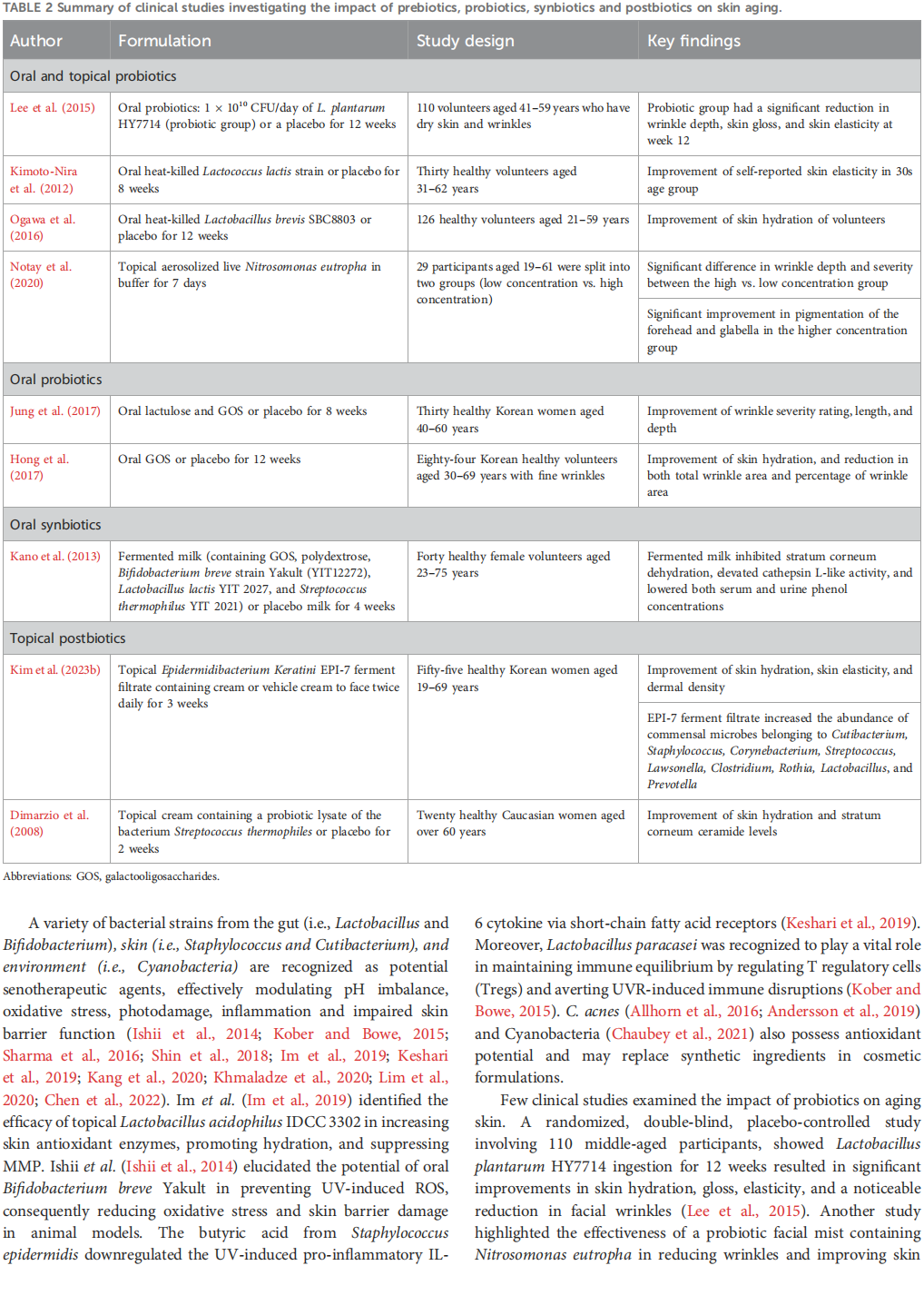
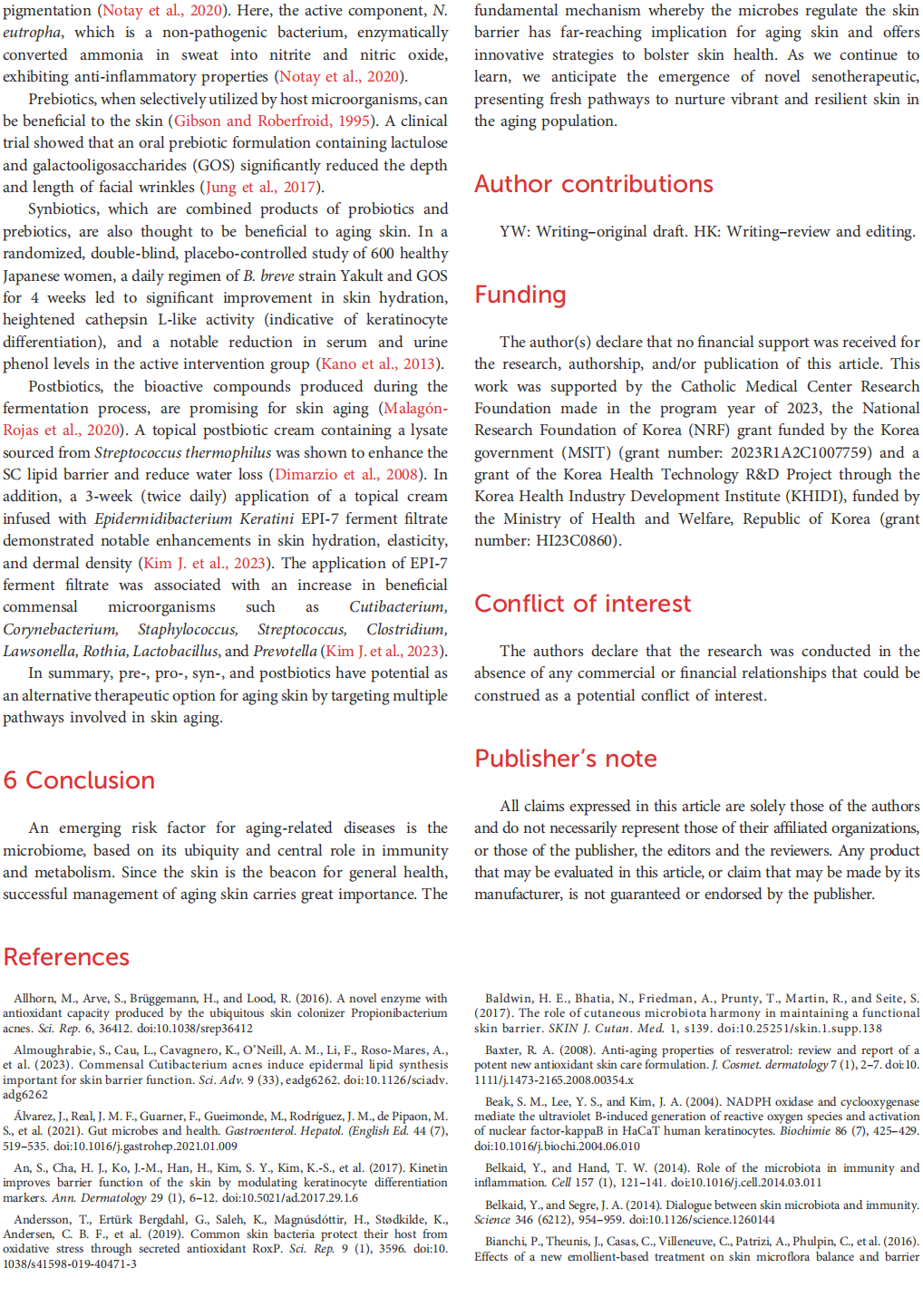
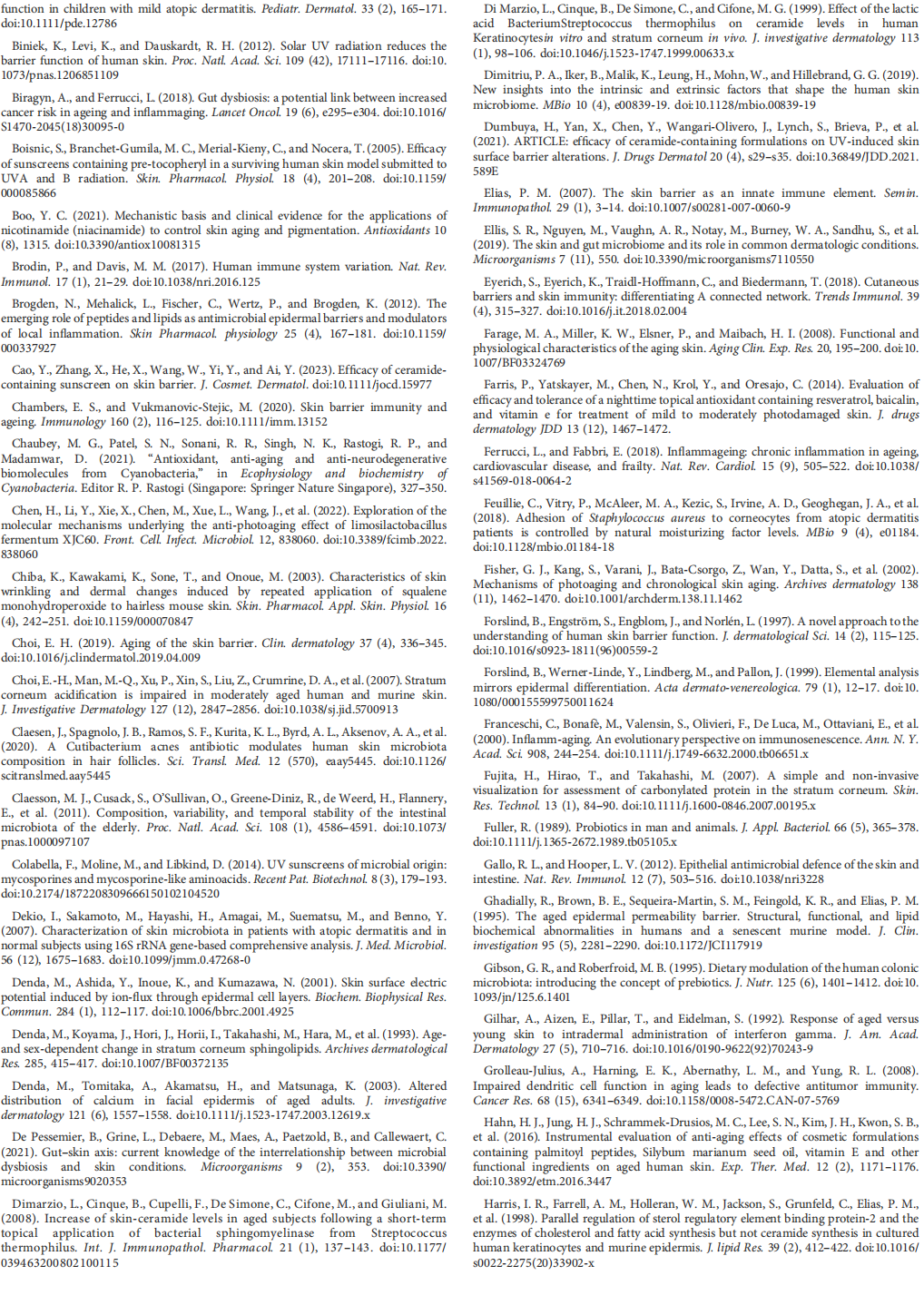
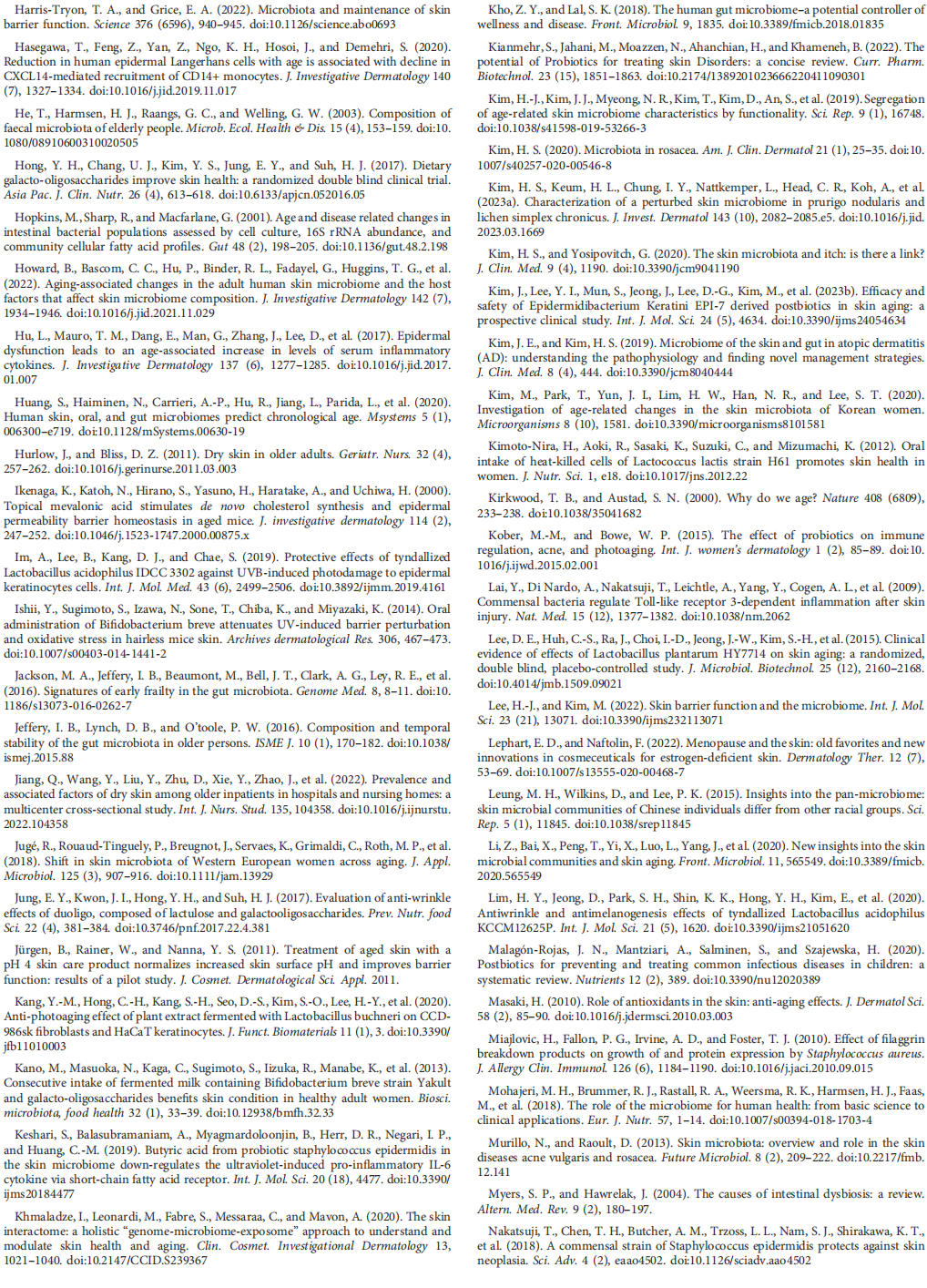
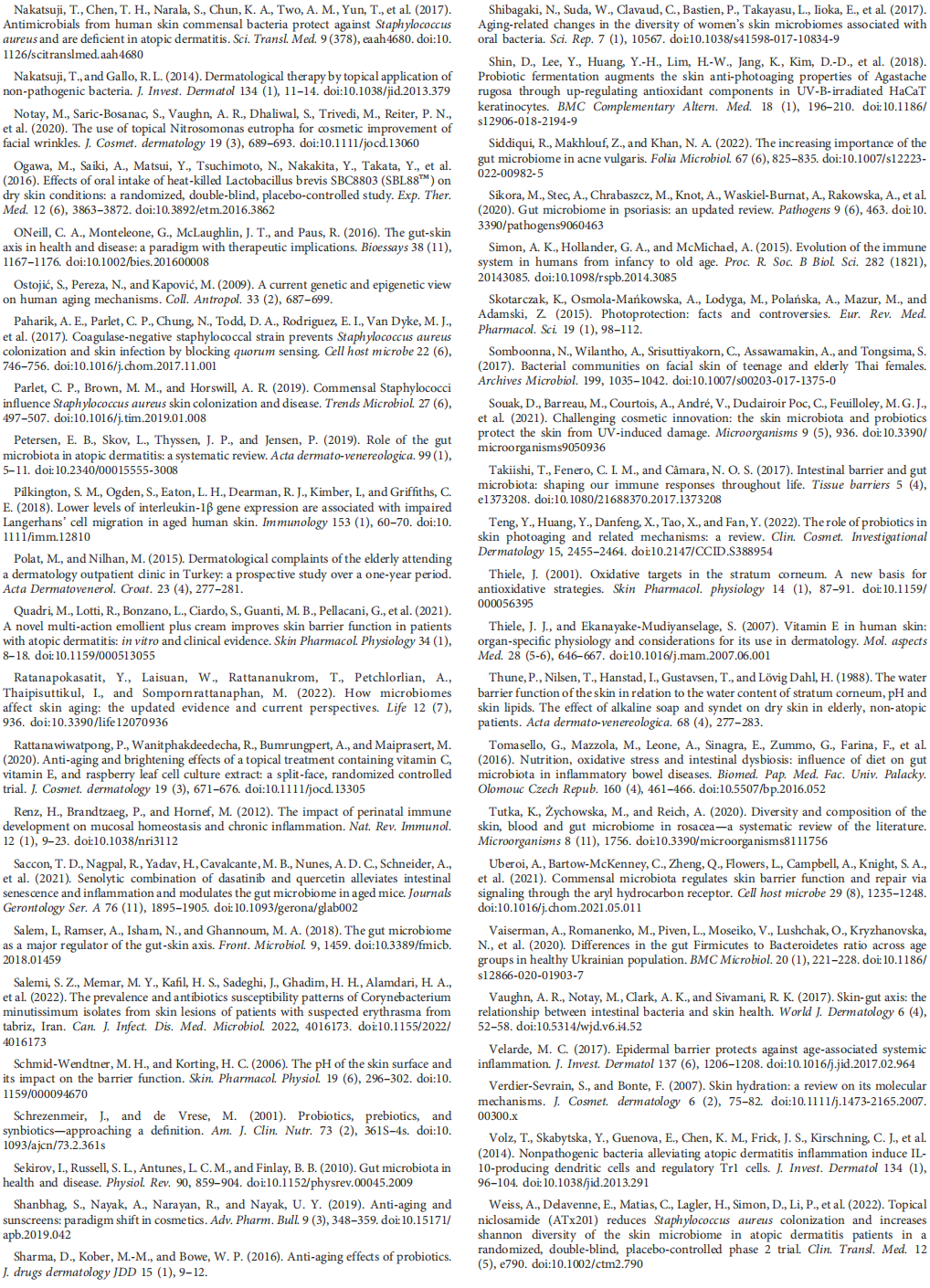
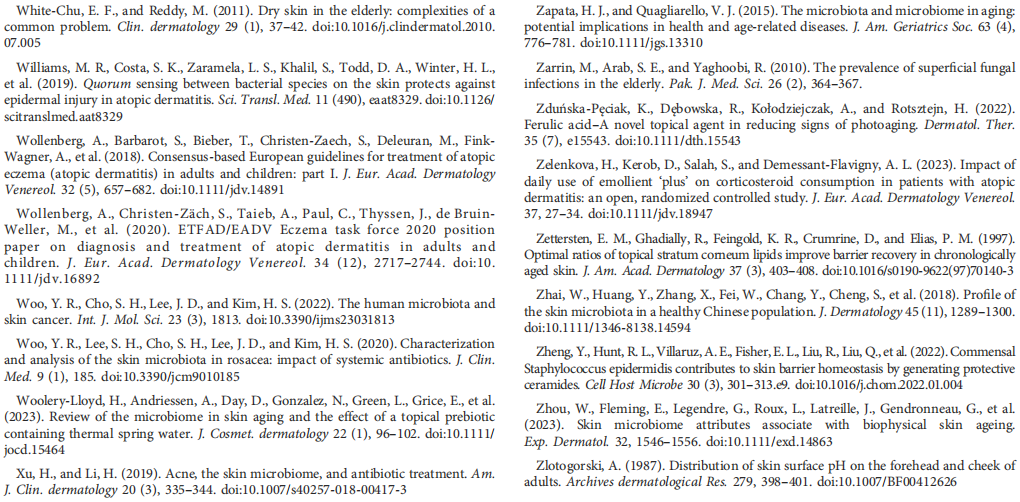
This article is excerpted from the Frontiers in Physiology by Wound World.
Yu Ri Woo and Hei Sung Kim*
Department of Dermatology, Incheon St. Mary’s Hospital, College of Medicine, The Catholic University of
Korea, Seoul, Republic of Korea
EDITED BY
Alexandra P. Marques,
University of Minho, Portugal
REVIEWED BY
Piotr Konopelski,
Medical University of Warsaw, Poland
Karolina Chilicka-Hebel,
Opole University, Poland
*CORRESPONDENCE
Hei Sung Kim,
该Email地址已收到反垃圾邮件插件保护。要显示它您需要在浏览器中启用JavaScript。
RECEIVED 16 October 2023
ACCEPTED 03 January 2024
PUBLISHED 19 January 2024
CITATION
Woo YR and Kim HS (2024), Interaction between the microbiota and the skin barrier in aging skin: a comprehensive review.
Front. Physiol. 15:1322205.
doi: 10.3389/fphys.2024.1322205
© 2024 Woo and Kim. This is an open-access article distributed under the terms of the Creative Commons Attribution License (CC BY).
The use, distribution or reproduction in other forums is permitted, provided the original author(s) and the copyright owner(s) are credited and that the original publication in this journal is cited, in accordance with accepted academic practice. No use, distribution or reproduction is permitted which does not comply with these terms.
The interplay between the microbes and the skin barrier holds pivotal significance in skin health and aging. The skin and gut, both of which are critical immune and neuroendocrine system, harbor microbes that are kept in balance. Microbial shifts are seen with aging and may accelerate age-related skin changes. This comprehensive review investigates the intricate connection between microbe dynamics, skin barrier, and the aging process. The gut microbe plays essential roles in the human body, safeguarding the host, modulating metabolism, and shaping immunity. Aging can perturb the gut microbiome which in turn accentuates inflammaging by further promoting senescent cell accumulation and compromising the host’s immune response. Skin microbiota diligently upholds the epidermal barrier, adeptly fending off pathogens. The aging skin encompasses alterations in the stratum corneum structure and lipid content, which negatively impact the skin’s barrier function with decreased moisture retention and increased vulnerability to infection. Efficacious restoration of the skin barrier and dysbiosis with strategic integration of acidic cleansers, emollients with optimal lipid composition, antioxidants, and judicious photoprotection may be a proactive approach to aging. Furthermore, modulation of the gut-skin axis through probiotics, prebiotics, and postbiotics emerges as a promising avenue to enhance skin health as studies have substantiated their efficacy in enhancing hydration, reducing wrinkles, and fortifying barrier integrity. In summary, the intricate interplay between microbes and skin barrier function is intrinsically woven into the tapestry of aging. Sound understanding of these interactions, coupled with strategic interventions aimed at recalibrating the microbiota and barrier equilibrium, holds the potential to ameliorate skin aging. Further in-depth studies are necessary to better understand skin-aging and develop targeted strategies for successful aging.
KEYWORDS
aging, skin, microbe, skin barrier, gut














This article is excerpted from the Frontiers in Physiology by Wound World.
